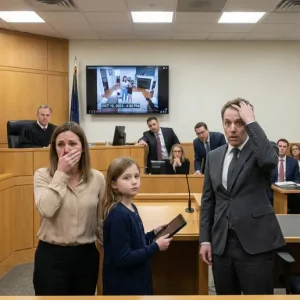During a tense oversight hearing on Capitol Hill, Democratic Representative Lena Marlow stunned the room when a photographer captured her secretly texting someone saved in her phone under the name “Epstein.” The image spread across social media within minutes, sparking a firestorm of speculation about who the mysterious contact might be. Opponents seized the opportunity, suggesting impropriety, while supporters insisted there had to be a reasonable explanation.
When confronted by reporters after the session, Marlow appeared flustered but maintained that the situation was being “blown wildly out of proportion.” She clarified that the name “Epstein” in her phone did not refer to the infamous figure the public immediately assumed, but rather to a local technology consultant named Eliot Epstein, who had been assisting her office with cybersecurity questions. According to her, she had been messaging him about a technical malfunction in her tablet that was disrupting the hearing notes she needed.
Critics found the timing suspicious. They argued that if Marlow truly needed technical support, her staff should have handled it, not an outside consultant during a nationally televised hearing. Some lawmakers openly mocked her explanation, calling it “the most absurd excuse given on the Hill this year,” and demanded she release the text thread to prove her story. The opposition claimed her response raised more questions than answers, fueling an already heated political atmosphere.
Despite the backlash, Marlow’s team insisted they would not release private data simply to quiet rumors. They maintained that the consultant existed, that his contact information was genuine, and that the entire controversy was rooted in a misleading photo taken at the perfect moment to ignite outrage. For now, the incident remains a vivid example of how quickly a single image can spiral into a political firestorm—and how difficult it is to extinguish once the narrative takes hold.






